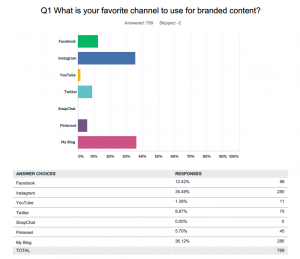Google and all the other search engines online handle billions of search requests each day. They respond to the words and phrases people type in when looking for a product, topic, service, movie, book, etc. Those search requests are known as “keywords” or “keyword phrases”.
Using keywords for niche ideas is useful because it can help bring you new sub-niche ideas that you may not have otherwise thought of. More than that, though, it shows that people are actually searching for information on these topics. They just need someone – like you! – to give them the information they’re looking for.
There are several ways to use those keywords and phrases to your advantage. Here are a few of the top ways smart bloggers and web businessmen and women use keyword research to reveal marketable niche ideas.
Use the Google Auto-Complete Feature
Head to Google. Type a word, any word, into the Google search engine. Don’t hit enter! What do you see? Google displays a list of possible phrases that you may be looking for. This auto-complete feature is based on popular search requests from previous users. That means that when you type in any word, the possible questions or phrases Google creates based on that word have been typed in millions of times by web surfers.
This guarantees a viable marketplace. For instance, typing the word “ballet” reveals the Google auto-complete suggestions “ballet shoes”, “ballet flats”, “ballet positions” and many more ballet-specific terms.
Use Udemy
Udemy is a website that sells information courses. You can use their information database to choose a profitable niche. The first step is to head to Udemy.com.
Click on “Browse Courses”. You will see a menu on the left side of your screen with different course categories. Choose a main category by clicking on it. You will now see a list of courses offered in that larger niche.
Then choose “All Courses” from the top menu. Change the “Sort by” option to “Popularity” on the next page that pops up. Next what you see is a list of the most popular courses, in other words, the best-selling. There are extra filtering features on the left side of the page if you want to filter further.
This is a great way to find out what people are actually paying their hard-earned money for. In many cases, you can also see great marketing headlines and potential names for a course or info product you may create.
Ask the FaqFox
 This is a handy tool that virtually no one knows about. It trolls forums and aggregators and scrapes keywords and phrases based on a word that you enter. Simply enter any keyword into the first text box at FaqFox.com. You then enter a forum, or choose from one of the categories of starter sites listed.
This is a handy tool that virtually no one knows about. It trolls forums and aggregators and scrapes keywords and phrases based on a word that you enter. Simply enter any keyword into the first text box at FaqFox.com. You then enter a forum, or choose from one of the categories of starter sites listed.
What you receive is a list of thread titles, and links, relevant to your keyword. In many cases these are the very questions people are asking in a particular niche market. When you see hundreds, or even thousands, of people talking about the same problem, product or service, there is a profitable market there.
The following free keyword research tools were viable as of May 2016 for discovering niche markets:
- HyperSuggest
- Google Keyword Planner
- AnswerThePublic
- SEOStack Chrome Extension
- UberSuggest
- Google Trends
- Soovle
- Bing Webmasters Tool
Make A Note of Those Keywords!
While you’re searching for a niche idea, don’t forget to make a note of any keyword phrases that stand out to you. These will make valuable future content ideas for blog posts, emails and paid products!
And remember, your niche and your content doesn’t have to be a specific keyword phrase. Even though seeing your niche searched for shows there is interest in a niche, there are also untapped niches that may not be evident from your keyword research.
Validating Your Niche Ideas
Using the methods listed above, you have probably found a potentially profitable niche market. But how do you validate that decision? How do you know you aren’t wasting time and money on an idea that doesn’t offer enough financial viability?
One way is to head back to Amazon. You may have a passion for Alaskan Husky breeding. However, a recent search in all of Amazon showed only 5 results for “Alaskan Husky breeding”. This can quickly tell you if you have a viable marketplace or not. On the other hand, a search for German Shepherd breeding turned up 50 results, meaning it is probably a better market than Alaskan Husky breeding. In most cases you would prefer to see at least 1,000 results for a particular term or phrase.
Additionally, you can once again harness the incredible data mining powers of Google. Type your prospective niche phrase into Google, surrounded with quotation marks. What you will see is a list of all the web pages which contain that exact phrase, in that exact order. A recent search for “keyword search tool” return 401,000 results! You want enough results so that your market is viable, but not so many so that you are fighting a lot of competition. A good target zone is roughly 25,000 to 100,000 results.
You can also use social media to validate your idea. Creating groups on Facebook is free. The same is true on LinkedIn and other social media sites. Build a group page on the topic you are thinking about marketing. Write a few blog posts, refer to important articles or websites in that field, and see what type of response you get.
There is another way to use social media sites to find out whether your niche market is viable or not. Type your keyword phrase or niche market name into the search engines of the biggest social media websites. Is there a lot of interest? Are there conversations, groups and events taking place or being created? Social media is where people talk about things that are important to them, so this information can be invaluable in determining the possible success of your business endeavor.
If you have some money to spend, you could even set up a short free report, a landing page and some Facebook ads to get people to sign up to your mailing list in order to receive your free report. You’ll soon see whether there’s any interest in the niche and whether it’s worth delving in any deeper!
Digital & Social Articles on Business 2 Community(56)
Report Post





